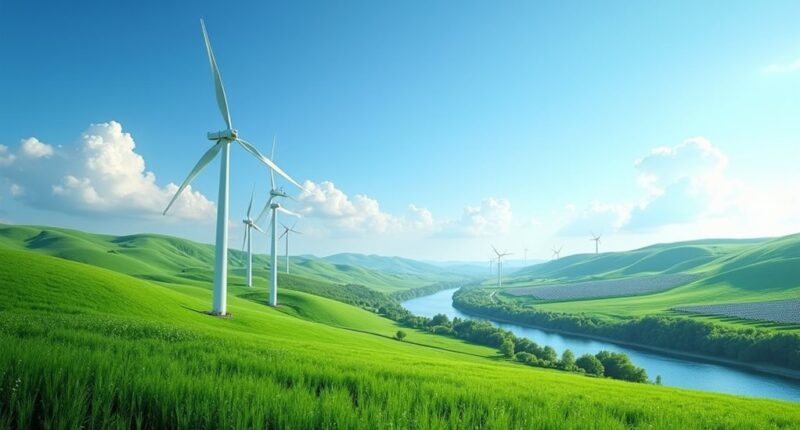Germany recently expressed conditional support for the EU’s ambitious 90% greenhouse gas emissions reduction target by 2040, showcasing a commitment to climate action while juggling economic realities. The proposed shift promises both challenges and opportunities, especially for heavy industries. Germany’s track record shows a 30.7% emissions reduction since 2005, but issues in transport and heating still loom large. With the right blend of investment and innovation, the path to a greener future could be energizing—stay tuned for what’s next!
Germany’s Strategic Climate Support
As Germany steps onto the global stage with its conditional support for the European Union’s ambitious goal of a 90% reduction in greenhouse gas emissions by 2040, it does so not just as a cheerleader for climate action, but as a cautious strategist weighing the implications of such a monumental shift.
Germany’s backing is a calculated move, intricately tied to its own climate commitments and the broader economic landscape. The European Commission’s proposal is part of the grand vision outlined in the European Green Deal, which aims for climate neutrality by 2050. It’s like a massive group project where everyone has to pull their weight, but Germany is keenly aware that not all members are equally equipped. Their support hinges on equitable burden-sharing, especially when heavy industries could face competitiveness issues. Germany knows the stakes: achieving this target will demand around €5 trillion, with a hefty slice of that pie—€500 billion—coming from its own coffers. Moreover, the EU is responsible for nearly one-third of global gas emissions, highlighting the urgency of collective action.
Germany’s support reflects a strategic alignment with its climate goals and the intricate dynamics of the economic landscape.
However, the path to this greener future is littered with obstacles. Germany has made strides, reducing emissions by 30.7% since 2005, yet it finds itself grappling with sector-specific targets, particularly in transport and heating. It’s a bit like trying to juggle while riding a unicycle—impressive, but fraught with risks. The nation is insistent that a strong EU-wide policy on renewable energy and hydrogen infrastructure is essential. The transition toward sustainable technologies offers a promising alternative to carbon-intensive energy sources while creating new economic opportunities. Additionally, the fossil fuel consumption for energy is projected to decrease by 80% by 2040, underscoring the importance of transitioning away from traditional energy sources.
But there’s a catch. Implementing these changes requires not just money but also the right timing and technological advancements—kind of like waiting for the perfect moment to pop the question. Public support is vital, with 55% of Germans recognizing climate change as a pressing issue. Yet, fears of economic disruption and rising costs of clean technologies loom large.
Germany’s call for pragmatic timelines acknowledges that, while ambition is essential, so is realism. After all, Rome wasn’t built in a day, and neither will Europe’s green future be.









